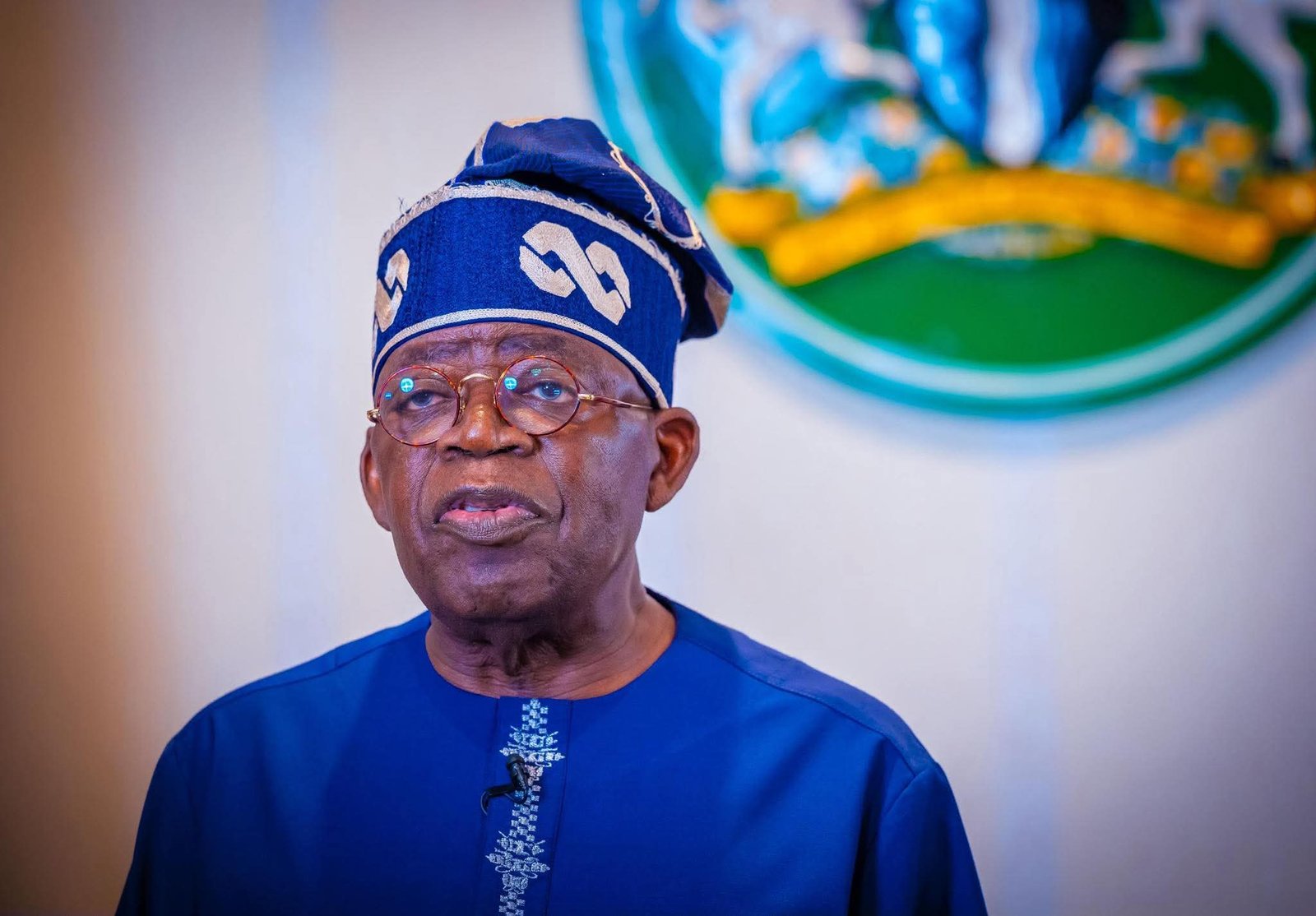2027: Battle for the Soul of the North
By Dakuku Peterside

Last week’s cascade of political signals began with the release of a federal appointments list in which every new appointee hailed from one of the nineteen northern states.
It was a development that instantly reignited speculation that preparations for the 2027 presidential race had moved from the shadows into daylight. Not long after, the presidency orchestrated a high-level forum in Kaduna tagged “Assessing Electoral Promises: Fostering Government-Citizens Engagement for National Unity.” Ministers, governors, military top officers and civic leaders of northern extraction gathered to assess the federal government’s record, particularly in the northern region of Nigeria.
To the politically attuned, these back-to-back events were not accidental. They were calculated moves—part outreach, part damage control—amid growing tensions between the North and Abuja.
The political establishment is now keenly aware that sentiments in northern Nigeria hold significant implications for the nation’s political future, where dissatisfaction or approval can decisively shift electoral fortunes.
These recent manoeuvres hint that the federal government senses a rapidly eroding political capital and is scrambling to reverse the tide.
At the core of this strategic recalibration lies a political reality that cannot be overlooked: the North remains Nigeria’s electoral powerhouse. It encompasses approximately 75% of the country’s landmass and nearly two-thirds of its voting population. In the 2023 presidential election, President Bola Tinubu garnered approximately 5.6 million of his 8.8 million total votes from the three northern geopolitical zones—more than the South West and South South combined. Arewa leaders now wield those numbers like a moral IOU, cautioning the State House that gratitude is a two way street.
This means that almost 64% of the votes that secured his victory came from the North, a region where many now feel increasingly let down by the very government they helped install.
However, if these recent appointments were intended to pacify the region, the impact seems to be limited at best. While northern elites may view them as a symbolic gesture of inclusion, the sentiment on the ground tells a more intricate story—one marked by disillusionment, hardship, and growing restiveness. Secretary to the Government of the Federation, George Akume, attended the Kaduna forum to deliver a message of reassurance. But when he advised northern politicians to ‘wait till 2031’ before seeking another shot at the presidency, it only fueled further unease. For many, it felt like a paternalistic reminder of power rotation rules rather than a genuine attempt to address concerns about marginalisation and economic neglect. The urgency of these grievances cannot be overstated, as they have the potential to alter the political landscape significantly.
The North’s grievances go far beyond political appointments. According to the National Bureau of Statistics (NBS), 133 million Nigerians—roughly 63% of the population—live in multidimensional poverty, and over 60% of these impoverished Nigerians reside in the northern region. Sokoto State, for instance, tops the multidimensional poverty index with a staggering 90.5% poverty rate, followed by Zamfara (88%), Jigawa (87%), and Katsina (84%).
This structural poverty is compounded by an unemployment crisis and persistent insecurity, particularly in the North-West and North-East.
Food inflation has further deepened the pain. In May 2025, Borno State recorded a food inflation rate of 64.4%, the highest in the country. Katsina and Kebbi also posted inflation rates above 55%, far exceeding the national average. These figures translate into real suffering for ordinary Nigerians: families unable to afford basic staples like rice, maise, tomatoes, and other grains ; children dropping out of school due to hunger; farmers abandoning fields because of insecurity or unaffordable inputs. Southern households are hurting too: Ebonyi’s food prices jumped to 25.9 per cent and Cross River spiked to 27.3 per cent during the same period, proof that hardship no longer obeys geopolitical boundaries.
The security situation is just as dire. In the first half of 2025 alone, over 2,266 Nigerians were killed in violent incidents, according to data from SBM Intelligence. The North-West region remains the epicentre of mass abductions, banditry, and communal clashes. Zamfara, Kaduna, Niger, and Katsina States continue to suffer weekly attacks, with villages razed, schoolchildren kidnapped, and farming communities displaced. Every unguarded highway, every burnt out village, chips away at the argument that appointments alone satisfy regional expectations. The federal government has launched multiple operations—such as Operation Hadarin Daji and Operation Safe Haven—yet banditry persists, often shifting from one axis to another in a deadly game of cat and mouse.
In this climate, a political vacuum is beginning to open. The ruling All Progressives Congress (APC) is not only dealing with a disenfranchised northern base but also facing a credible challenge from opposition forces. The African Democratic Congress (ADC), for instance, is positioning itself as the new home for northern dissent.
Former Secretary to the Government of the Federation, Babachir Lawal, recently declared that APC governors in the North would become ‘unelectable’ in 2027 if they continue to ignore public frustration. Though perhaps premature, such rhetoric underscores a dangerous truth: the so-called ‘Buhari 12 million bloc—a near-guaranteed northern vote bank, a reference to the number of votes President Buhari received in the 2019 election—is no longer securely in APC’s column.
Meanwhile, the long-standing debate over zoning and federal character has resurfaced. Critics accuse the Tinubu administration of selectively applying the Federal Character principle, pointing to the ethnic and regional composition of recent appointments.
They highlight the dominance of South-Westerners in key economic and security portfolios and now, in a seeming reversal, an over-correction favouring the North. Supporters of the administration, however, argue that such appointments reflect the need to reward political loyalty and competence. Yet for ordinary Nigerians—regardless of region—the more pressing question is not who got appointed, but whether the appointees will deliver tangible results. This emphasis on results over rhetoric is crucial for effective governance and the audience’s understanding of the political landscape.
Interestingly, complaints about marginalisation are not exclusive to the North. In the South-East and South-South, many believe that their regions remain structurally underrepresented in the Tinubu government and in the allocation of federal infrastructure. South East leaders, for instance, have decried what they describe as a ‘conscious sidelining’ of the region, pointing to the lack of key appointments and significant infrastructure projects. Despite the appointment of former Ebonyi State Governor, Dave Umahi, as Minister of Works, the region feels it is not getting its fair share of the national cake. Others argue that key projects, such as the Calabar–Port Harcourt axis of the coastal highway, the Enugu–Onitsha Expressway, and the second Niger Bridge maintenance effort, are proof of the President’s inclusivity. What’s clear is that perceptions of neglect—whether founded or not—are politically potent and must be managed delicately.
Then there is the silent but powerful force of the youth. Northern youths, who comprise the largest share of the population in states such as Kano, Katsina, and Borno, are increasingly expressing their discontent through digital platforms. Hashtags like #SecureNorth, #EndFoodInflation, and #NorthBleeds have become viral rallying points. TikTok videos show empty markets and lamenting farmers. Arewa Twitter now critiques governance with the same intensity that southern social media once did during the #EndSARS protests. Arewa Twitter and TikTok amplify food price charts, wage memes and security dashboards faster than any party’s communications unit can respond. Their verdict on governance does not pause for rotation arguments; it crunches inflation figures, poverty counts and electricity downtime. These digital sentiments are not just noise; they are shaping political awareness, building informal networks, and potentially influencing turnout and choices in 2027.
Amid this turbulent backdrop, one wonders: What will 2027 be about? Will it be a contest over ethnic arithmetic and regional entitlement, or a referendum on tangible outcomes—on who can reduce inflation, end insecurity, create jobs, and restore a measure of national dignity? Will voters accept tokenistic gestures and manipulated statistics, or will they demand answers backed by lived experiences?
The stakes are immense. A president who fails to tame inflation or curtail mass poverty risks alienating not just the North but Nigerians across all regions. Conversely, any candidate or party that can present a coherent plan for economic recovery, food security, and inclusive governance may find unexpected traction, even in areas that previously voted against them. 2027 may perhaps be a referendum on tangible outcomes rather than tribal arithmetic. If the presidency can break food inflation, reverse the poverty trajectory and tame the gunmen, the North’s goodwill may yet hold. Fail, and the region that once delivered a decisive victory could just as decisively withdraw it.
Ultimately, 2027 must not be about North versus South, or Fulani versus Ijaw or Igbo, or APC versus PDP versus ADC. It must be about results. It must be a test of leadership, competence, and empathy. The challenges Nigerians face today do not discriminate based on ethnicity, religion, or political affiliation—they are national in scale and deeply personal in impact. A child going to bed hungry in Sokoto shares the same pain as one in Abia. A farmer abandoning his land due to insecurity in Zamfara is no different from a fisherman in Rivers whose business has collapsed under inflation and emergency rule . The real divide in 2027 is not regional; it is between those who govern effectively and those who merely campaign well.
The tide is changing, and it is no longer governed by geography alone but by the question every Nigerian now asks with increasing urgency:
Who will make life better for me and my children? This question, once whispered in frustration, is now being shouted across timelines, town halls, and traffic stops. It is a clarion call to all contenders: deliver tangible change or be swept away by a wave of discontent that has little patience for empty rhetoric.
2027 must be the year Nigeria chooses leadership over lineage, solutions over slogans, and vision over vengeance.





